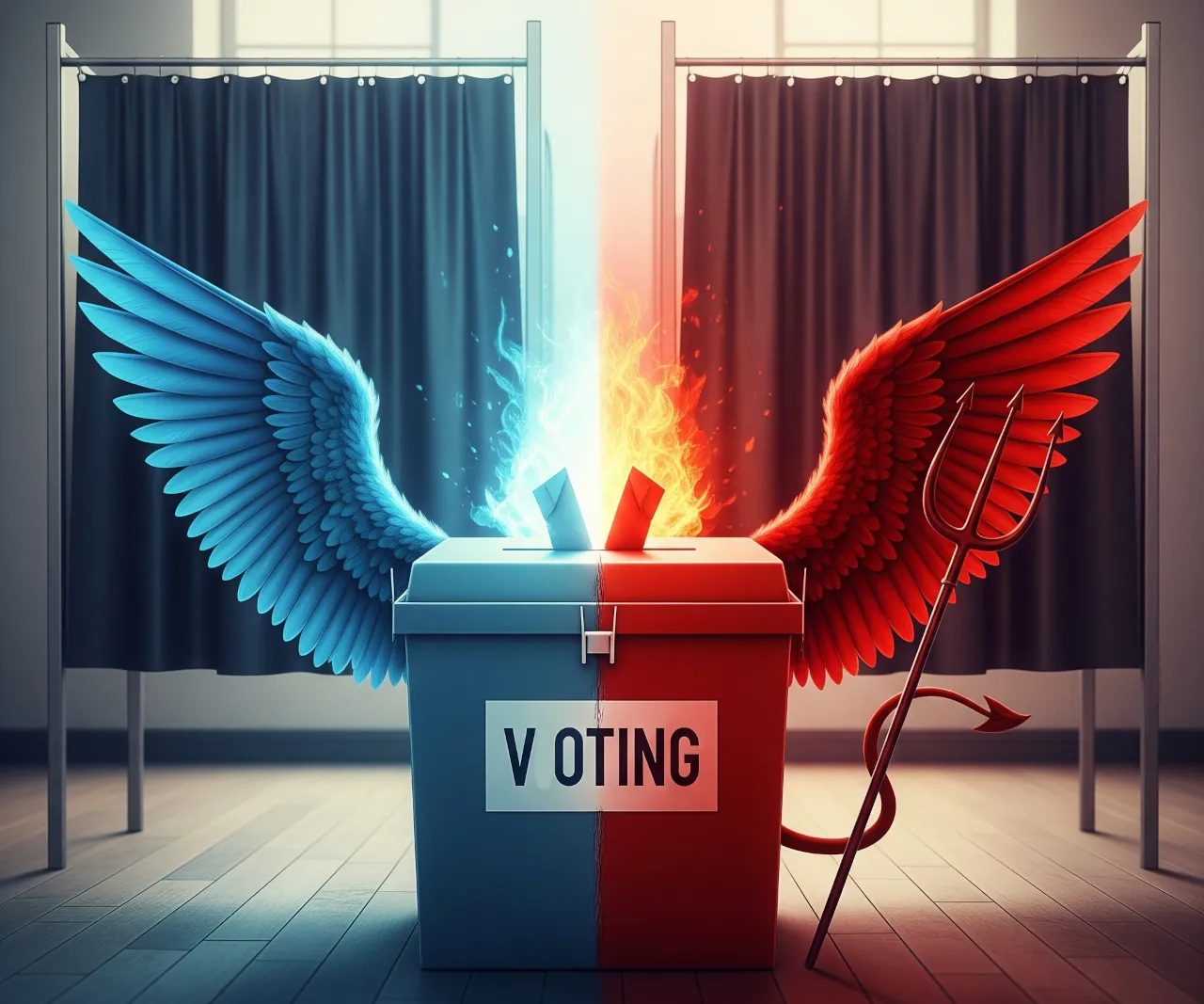THE VOTE, THE TRUTH, AND THE LABYRINTH OF DISINFORMATION: A STARK LOOK AT CURRENT ELECTIONS

The electoral campaign for this year’s presidential elections has, once again, brought to light a deep and worrying problem in Romanian and global society: a toxic mixture of lack of civic education, bad faith, and an alarming dose of foolishness that seems to dominate public debate and distort the perception of truth. In an era of unlimited access to information, it seems many choose, consciously or unconsciously, to take refuge in the comfort of simple lies.
The Search for the Meaning of Truth: A Losing Battle?
One of the most striking observations of this electoral cycle is the often stereotypical profile of sovereignist voters. The image emerges of people who, in a desperate search for meaning or belonging, seem to embrace simplistic narratives, often filled with hatred and resentment. This category of voters, prone to “groupthink” and “confirmation bias,” often finds confirmation of their own beliefs in the echo chambers of social networks, where false information is endlessly recirculated. They appear to be simple people, ready to harm those they perceive as “enemies” – the elites, Brussels, foreigners – in a rhetoric that dangerously resembles dark eras like Communism.
On the other side of the barricade, pro-European forces are often viewed under a microscope of distrust, labeled as “sold out” or “lacking patriotism.” This simplistic dichotomy, propagated by populist discourse, prevents any constructive debate and deepens polarization even further. “Divide and Conquer.” We are easy prey for a country like Russia that awaits discord.
The CNA and Disinformation: An Unequal Fight
It is incomprehensible how the National Audiovisual Council (CNA) can permit such an avalanche of blatant lies from politicians, especially those who feel they are losing ground. The public space, whether televised or online, is flooded with false statements, disinformation, and personal attacks, which only poison the atmosphere and undermine trust in the democratic process. The lack of effective sanctions or their lax application turns the CNA into a passive spectator, instead of an active guarantor of fairness and balance.
The Tyranny of Algorithms and “Fake News”: A Digital Trap
As we spend more and more time on platforms like TikTok and other social media, we expose ourselves, often unconsciously, to a constant flow of “fake news.” The algorithms of these platforms, designed to maximize user engagement, tend to serve us content that confirms our existing biases, creating information bubbles impermeable to the truth. It’s a bitter paradox: although we have access to all the world’s knowledge, we are more vulnerable than ever to manipulation.
Educating the population in the face of this informational tsunami is an arduous process and, often, demeaning for those who strive to do it. It takes five seconds to share false information, a ready-made lie that feeds primal emotions. In contrast, it takes hours, whole days, even weeks of research and writing to draft an article that explains cognitive dissonance, dismantles thinking biases (such as “availability bias” or the “Dunning-Kruger effect”), and separates lies from truth. It’s a disproportionate fight, where disinformation has an overwhelming advantage in speed and accessibility.
The Bitter Consequences of Civic Apathy
The sad truth is that most people seem to prefer “cheap lies,” easy to digest, without feeling the need to seek the truth itself. This tendency has decisively contributed to a massive voter turnout in favor of imposters, of politicians whose only offer is demagoguery and hatred.
Those who did not turn out to vote, invoking all sorts of false reasons and propaganda arguments about “lack of options” or “the futility of voting,” bear a significant part of the responsibility. Statistically, if few voters turn out, those who vote united, even if they represent a minority, decide the fate of countries. This is a harsh reality, often neglected, which demonstrates the fundamental importance of every vote and of civic education. The “bandwagon effect” and “status quo bias” also play a role in this apathy, causing people to remain in their comfort zone and avoid active involvement.
Whither Civic Education?
In a society where truth becomes a commodity, and discernment is a rare skill, the question “Whither civic education?” is more pertinent than ever. How many of us have truly entered this labyrinth of information with clear guidance and solid preparation to distinguish reality from fiction? The answer is probably disheartening, but it requires urgent intervention at the level of the educational system and society as a whole. Otherwise, future elections risk being just a repeat of this democratic farce.